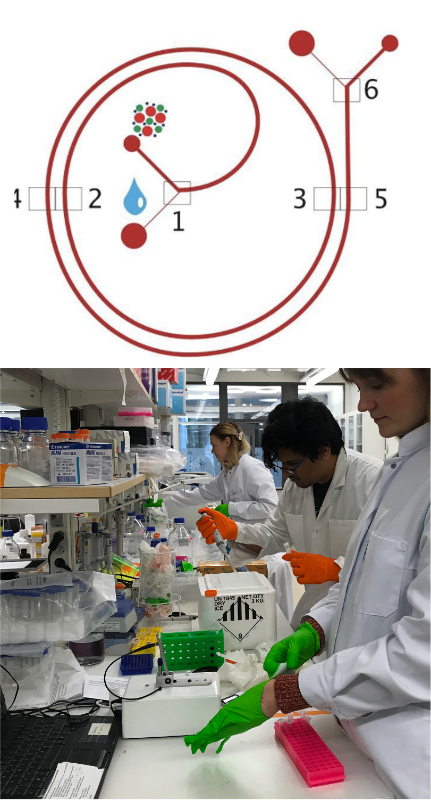The course in Clinical Applications of Biotechnology provides an orientation on biotechnological methods and measurements used in healthcare. The course provides both theoretical background and practical application of analytical methods. The course includes basic knowledge of molecular disease mechanisms, biomarkers, molecular biology tools and methods. New developments with the potential to be integrated in a clinical context are highlighted. The course includes ethics and sustainability.
CB2021 Clinical applications of biotechnology 6.0 credits

The course addresses clinical applications of biotechnology to screen, diagnose, and select treatments. Applications are exemplified within two major diseases: breast cancer and cardiovascular diseases. Examples of how targeted treatments have been developed with the help of biotechnology are included.
Information per course offering
Course offerings are missing for current or upcoming semesters.
Course syllabus as PDF
Please note: all information from the Course syllabus is available on this page in an accessible format.
Course syllabus CB2021 (Autumn 2024–)Content and learning outcomes
Course contents
Intended learning outcomes
Knowledge and understanding
After passing the course the student must be able to:
- Describe basic concepts regarding the main parts of the course.
- In text, explain basic principles for biotechnological methods and measurements of biological samples.
- Give examples of clinical applications of biotechnology.
Skills and abilities
After passing the course the student must be able to:
- Relate biotechnological applications with underlying molecular disease mechanisms.
- Be able to apply diagnostic measurements and report results in writing and orally.
Values and approaches
After passing the course the student must be able to:
- Suggest biotechnological applications for clinical use and explain their benefits and disadvantages.
- Reflect on the clinical use of biotechnology from an ethical, economic, ecological, and social perspective.
Literature and preparations
Specific prerequisites
Completed degree project 15 credits in technology or natural sciences, 20 credits courses in biotechnology, 10 credits courses in mathematics, and 20 credits courses in chemistry. English B/6.
Literature
Examination and completion
Grading scale
Examination
- TEN1 - Written exam, 4.5 credits, grading scale: A, B, C, D, E, FX, F
- LAB1 - Laboratory work,, 1.5 credits, grading scale: P, F
Based on recommendation from KTH’s coordinator for disabilities, the examiner will decide how to adapt an examination for students with documented disability.
The examiner may apply another examination format when re-examining individual students.
If the course is discontinued, students may request to be examined during the following two academic years.
Other requirements for final grade
There are elements with compulsory attendance.
Examiner
Ethical approach
- All members of a group are responsible for the group's work.
- In any assessment, every student shall honestly disclose any help received and sources used.
- In an oral assessment, every student shall be able to present and answer questions about the entire assignment and solution.